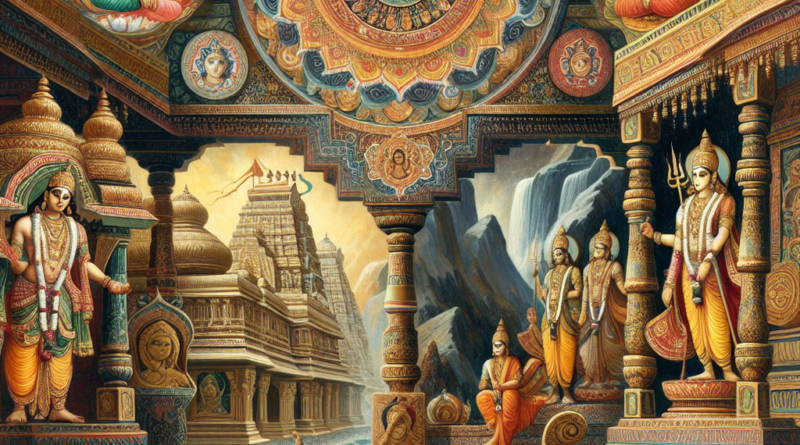Unlocking the Secrets of Vedic Wisdom
Title: Exploring the Rich Vedic Traditions: Significance in Hindu and Indian Culture
Introduction
The Vedic traditions form the bedrock of Hinduism, one of the world’s oldest religions. Rooted in the sacred texts known as the Vedas, these traditions have shaped the spiritual, cultural, and social fabric of India for millennia. In this article, we delve into the historical context and contemporary relevance of Vedic traditions in Hindu and Indian culture.
Historical Context
The Vedas, composed between 1500 and 500 BCE, are a collection of hymns, rituals, and philosophical teachings that were transmitted orally for generations before being written down. They are divided into four main texts: the Rigveda, Yajurveda, Samaveda, and Atharvaveda. These texts form the foundation of Vedic knowledge and serve as a guide for religious practices, ethical conduct, and societal norms.
Secrets of Vedic Wisdom
The Vedic period saw the development of complex rituals, sacrificial ceremonies, and the concept of dharma, or righteous duty. The caste system, with its division of society into four varnas based on occupation, also emerged during this time. Brahmins, the priestly class, were entrusted with preserving and interpreting the Vedas, while other varnas had specific roles and responsibilities within society.
Significance in Hindu and Indian Culture
Vedic traditions continue to hold immense significance in Hindu and Indian culture. They provide a spiritual framework for understanding the universe, human existence, and the relationship between the individual and the divine. Mantras and rituals derived from the Vedas are integral to Hindu worship and are believed to have a transformative effect on the practitioner.
The concept of karma, the law of cause and effect, is rooted in Vedic teachings and influences the ethical and moral code followed by many Hindus. The pursuit of moksha, liberation from the cycle of birth and death, is a central tenet of Vedic philosophy and guides spiritual seekers on the path to self-realization.
The practice of yoga, which aims to unite body, mind, and spirit, has its origins in Vedic traditions. Patanjali’s Yoga Sutras, an ancient text that codifies the principles of yoga, draws upon Vedic philosophy and provides a systematic approach to spiritual growth and self-discovery.
Contemporary Relevance
In modern-day India, Vedic traditions continue to shape religious ceremonies, rites of passage, and cultural practices. Festivals like Diwali, Navaratri, and Holi are celebrated with fervor, drawing upon Vedic mythology and symbolism. The recitation of Vedic mantras and chants remains a common practice in religious rituals and ceremonies, believed to invoke divine blessings and protection.
Ayurveda, the traditional system of medicine originating from Vedic texts, emphasizes holistic healing and the balance of mind, body, and spirit. Ayurvedic practices, such as yoga, meditation, and herbal remedies, have gained popularity worldwide for their natural and holistic approach to health and well-being.
The teachings of the Vedas continue to inspire philosophical inquiry, ethical reflection, and spiritual growth among Hindus and seekers of wisdom around the globe. Scholars, philosophers, and spiritual leaders draw upon Vedic wisdom to address contemporary challenges and explore timeless truths about the nature of reality and the purpose of human life.
Conclusion
The Vedic traditions hold a special place in Hindu and Indian culture, serving as a guiding light for spiritual seekers and a source of inspiration for cultural practices and traditions. Their timeless wisdom transcends boundaries of time and space, offering valuable insights into the nature of existence and the pursuit of spiritual realization. By honoring and preserving the legacy of the Vedas, we can continue to uphold the rich tapestry of Hindu and Indian heritage for generations to come.

